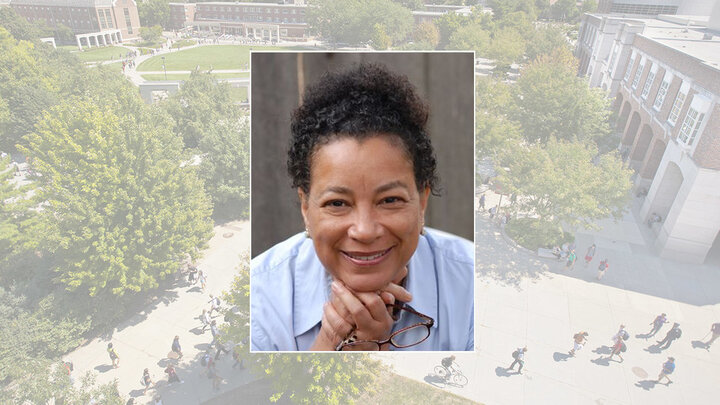Dr. Kwakiutl L. Dreher—Associate professor, Institute for Ethnic Studies, Department of English
Why did you choose this field?
I chose this field because it affords me the opportunity to learn more about my own people, their trials and tribulations, their joys and triumphs. Growing up in Columbia, South Carolina, the school's curriculum only allowed students to know about slavery, the 3/5ths compromise, the civil war, and emancipation; no African American literature was taught. One of my high school teachers did introduce a class on The Harlem Renaissance, but she had to fight for that, and it was after I had graduated. After college (that's another long story), I joined a book club. The first two books we read were Their Eyes Were Watching God by Zora Neale Hurston and The Color Purple by Alice Walker. Fascinating stories written by phenomenal Black women! When I decided to work on my masters at Clark Atlanta University, I chose African American literature as my field of study.
What are your area(s) of specialization?
African American Literature, Black Celebrity Autobiography, Film & Television
What is your favorite course to teach?
Ethnicity in Film: Blaxploitation Film
Blaxploitation (a combination of Black and Exploitation) is a film genre that receives a modicum of scholarship despite the fact that it is a vibrant and robust film genre. The genre practically saved the film industry from economic collapse in the 1970s; some studios, such as Columbia and Fox, were walking on the edge of bankruptcy. Enter Sweet Sweetback's Baadasssss Song (1970); Shaft in 1971; and Superfly in 1972. Hollywood took note of black audience reception. During its heyday, though, blaxploitation was controversial much to the consternation of those Black filmmakers, producers, screenwriters, cinematographers, hairdressers, costumers, actors/actresses who were gaining an economic foothold in the industry. Blaxploitation is rich in film criticism; the portrayals and storylines rattled the nerves of politicos in the Black community, and those politicos roiled against the genre. Those working in the industry fought back and continued to tell their stories until Hollywood did not need it anymore. "I saw us dead", laments Gloria Hendry (Black Caesar), "Black films saved Hollywood, and when they got through with us around '75 or '76, they dropped us."
What are you currently researching?
I am currently researching the life of a nun who took her vows at the Sinsinawa Dominican Sisters in Wisconsin. She is a character in a murder mystery I am writing that is set in my home of Columbia, South Carolina.
What professional organization(s) are you affiliated with?
Board Member, Journal of American Culture Board Member, The Haymarket Theatre




